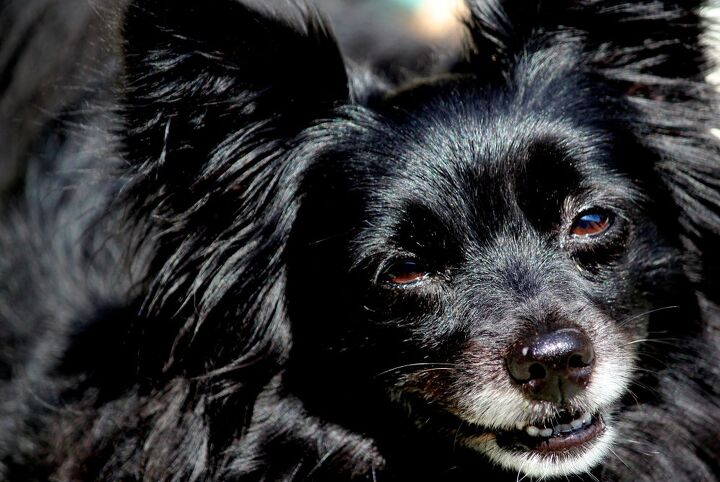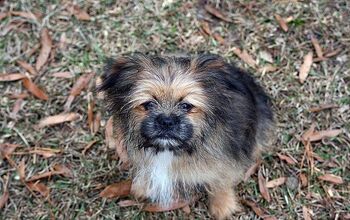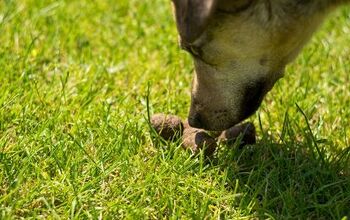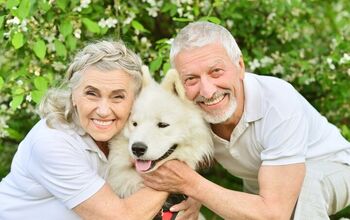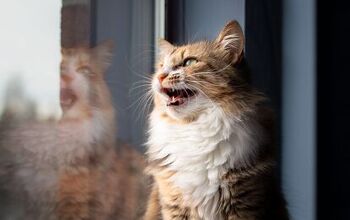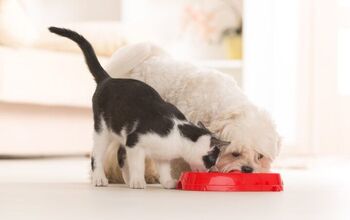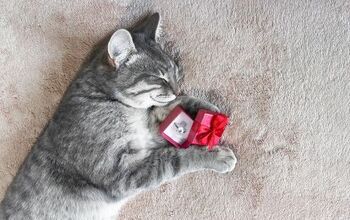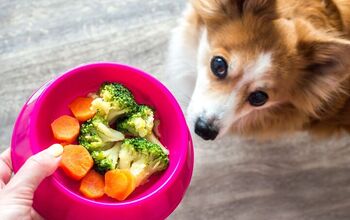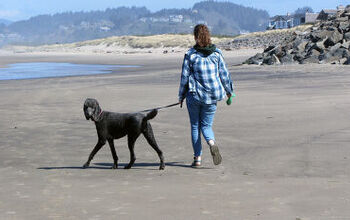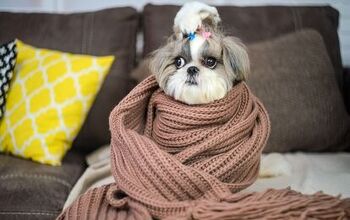Pomston


About Pomston
Friendly, outgoing, goofy, and smart- these all qualities that can be attributed to the charming Pomston. This recent designer dog breed is a result of crossing the feisty and intelligent Pomeranian with the friendly and gentle Boston Terrier. Due to their small size and easy going personalities, Pomston puppies are a great choice for people living in apartments and cities, as well as families with older children. Having a four-legged family member such as the loyal Pomston can appeal to many, though, as these adaptable pooches are bred to be the perfect companion dog, and are definitely suited for their intended role.
While the lack of uniformity is an issue for all designer dog breeds, there are some general assumptions that you can make about your crossbreed dog’s personality and mature appearance that turn out true. After all, every hybrid dog is a direct offspring of two purebred dogs, so there’s not much wiggle room when it comes to inherited traits. In Pomston’s case, this means that you’ll be getting a small breed pooch, eager to please their owners and with a very sweet nature, smart but often a bit stubborn, too- and yet, ideal if you want a furry companion that will enjoy spending time with you and cuddle on the sofa rather than go for a run.
Friendly, outgoing, goofy, and smart- these all qualities that can be attributed to the charming Pomston.
Pomston is a designer breed, which means that these dogs have been around only for the past few years- at least when it comes to intentional Pomeranian and Boston terrier mixes. However, the breeds that were used to create this unique hybrid dog have rich histories and have been by our sides long enough for us to get a clear picture of their breed-specific traits and qualities. The Pomeranian parent of the Pomston has been a treasured companion and a lap dog for royalty and nobles ever since the 18th century, and the “American gentleman” as we know it today came to be a century later. In both cases, the parental breeds of the Pomston are well-known, popular, and loved by generations of dog owners and enthusiasts all around the world.
Unfortunately, as a designer breed, Pomston is not officially recognized by the American Kennel Club, which means these puppies can’t have a pedigree. It’s not to say anything about Pomston qualities, as all crossbreeds and hybrid dog breeds are yet to be recognized by major canine clubs and organizations- hopefully, the growing popularity of designer dog breeds will influence the official organizations to reconsider their rules.
Your Pomston will need high-quality, well-balanced diet to stay healthy throughout its lifetime. Proper nutrition will ensure that your pet’s basic needs are met, and it’s of utmost importance to pick out the best Pomston food to support their overall health. Luckily, Pomstons are not too complicated when it comes to their dietary habits: they are rarely picky eaters and will do well with any high-quality kibble that’s appropriate for their current age (puppy, adult, or senior) and size. Dry food blends formulated for small breeds are usually a good choice, but make sure that the activity level of your pet matches the caloric values of the kibble. In most cases, Pomstons won’t be too active, so they don’t need calorie-dense foods for active dogs.
In fact, it is recommended to pay attention to how much food and treats you dole out to your loved Pomston in general, as they tend to be gluttonous and gain weight easily. Overfeeding your pet or overindulging them with yummy treats can only do them harm in the long run: obesity is a serious issue for Pomstons, same as any other canine. Make sure to follow the feeding guide printed on your pet’s food, or consult a veterinarian for advice on serving sizes.
Your Pomston will need high-quality, well-balanced diet to stay healthy throughout its lifetime.
Just like their Pomeranian and Boston Terrier parents, Pomstons are quite smart. But, while their intelligence is indisputable, that doesn’t mean that training them will be easy from the get-go. Both of these breeds have a stubborn streak in them, so don’t be surprised if your Pomston puppy turns out to be strong-willed, too. Of course, with the right incentive (hint: their favorite treats), even the most bull-headed Pomston can be motivated to learn! A little patience and the right training technique will do wonders for your new puppy: positive reinforcement training method will make Pomston receptive and awaken their quick-learning side.
Although Pomstons are not too prone to behavioral issues in general, timely socialization and basic manners will ensure that no issues arise as your pet grows older. Make sure to go through basic training with your pet if you don’t want to deal with problems such as separation anxiety or other destructive behaviors.
Designer dogs are unique: each pooch can have looks and character that’s truly one of a kind. After all, you can never know what genes in the mix will be the most dominant! However, there are some general rules of thumb when it comes to crossbreed dogs, and you can usually know what to expect, at least approximately, with each of the littermates. When it comes to the weight of adult Pomstons, there are no rules set in stone: depending on which of the parents your pet favors, their weight can be anywhere between 10 to 20 pounds.
Pomston dogs are known as friendly, outgoing, and quite affectionate. Both the Pomeranian and the Boston Terrier were bred to be lap dogs, and it’s no wonder that their offspring feels most at ease when snuggled next to their favorite human! Of course, it doesn’t have to mean that your pet will win the genetic lottery and inherit only the best of both worlds. Sometimes, some of the less desirable traits are inherited, such as the stubbornness of the Boston Terrier or the yippiness of the tiny Pom. Usually, though, the blend of characteristics typical for a Pomston is a highly-coveted one: these dogs make fiercely loyal, loving, and entertaining companions that adapt easily to most families’ lifestyles.
Additionally, Pomstons are beloved for their sweet nature that doesn’t discriminate, so you can expect these four-legged cuddle bugs to get along well with seniors, kids, strangers… They haven’t met a person that they didn’t want to wag their tail for! It goes without saying, though, that you’ll need to socialize your dog in order to see all of their best traits- without training, love, and care, it’s highly likely that your dog will turn out to be anxious, depressed, and even nippy towards strangers.
Most designer breeds have very few health issues, as diluting the gene pool of a purebred dog by introducing another breed is bound to minimize the chance for any inherited illnesses and conditions. Provided that your Pomston is fed well, has enough exercise and good care throughout their life, it’s safe to presume that they won’t be affected by any major health issues. However, it doesn’t mean that these crossbreed dogs are not prone to any health problems that their parents suffer from.
Pomstons that favor Pomeranian parent more might face dental problems such as early tooth loss, whereas those puppies that take up after the Boston Terrier in the mix might have eye problems, such as cherry eye or entropion (lid turning inward). Most of these issues are not life-threatening and can be prevented with timely care and veterinary assistance. In general, you can expect your Pomston to have far fewer health issues than a purebred dog.
Considering that it is expected for a designer dog breed to have fewer health issues than any of its purebred parents, as well as the fact that Pomston is a small breed dog, it is safe to assume that they’ll have long and healthy lives if they’re spending them in optimal conditions. As a hybrid breed that came to exist just in the last few years, it is still too early to tell how long these dogs live, but the life expectancy of their parents can tell us a lot about Pomston’s lifespan. These cute cross breeds are expected to live 13 to 16 years, possibly even more if all of their needs are being met.
While they are definitely excitable and playful, Pomston dogs are not high-maintenance when it comes to their exercise requirements. Yes, they do have a bit more energy than your average lap dog, but it just means that they’ll always be up for fun and adventures! A daily game of fetch long walks, or some zoomies in the backyard will keep your pet content, exercised and away from trouble: because, let’s face it, any dog that doesn’t burn off their energy is bound to become mischievous or even destructive. All things considered, Pomstons can be categorized as dogs who need a medium amount of physical activity and 30 to 60 minutes of exercise will be more than enough to keep them happy!
Pomstons can be categorized as dogs who need a medium amount of physical activity- ideal if you are an apartment dweller!
While the American Kennel Club will not recognize any designer dog as an official breed, there are numerous canine organizations and clubs that do make sure that there are certain standards of breeding for the hybrid dogs. The organizations that recognize the Pomeagle include American Canine Hybrid Club, Designer Dogs Kennel Club, Dog Registry of America, and International Designer Canine Registry.
The Pomeranian and the Boston Terrier are a world away when it comes to their fur: the first is recognizable by a fluffy, long-haired coat, whereas the American Gentleman flaunts a short, low-maintenance coat. It goes without saying that Pomstons can land anywhere between the two opposing sides! Additionally, Boston Terriers are well-known for their black and white coats, and Pomeranians can have a variety of coat colors, from tan to black.
When you combine the two breeds, you usually get a pooch with hair that is on the shorter side, in any of the color combos, from bicolored to brindle, to plain mono-colored tones. In general, Pomstons should be low-maintenance when it comes to their grooming needs. Brushing them every two days and giving them a bath every few weeks will be more than enough to keep them looking their best at all times!
Your new Pomston puppy will need a lot of care and attention to grow into a loving, wonderful pooch with time. Proper socialization and basic training are a must for this crossbreed cutie, as they will ensure that the best parts of their personality and behavior come to light and weed out any potentially problematic traits.
Pomston dogs are loved for their friendly, easy-going character and loyal nature, and they make perfect companions for families, seniors, and singles. As small breed dogs that don’t require much exercise, Pomstons will fit right in an urban environment and are an excellent choice for apartment living. Generally speaking, these dogs are quite adaptable and chances are that your lifestyle will suit them perfectly whether you have an outdoors-loving family with kids or want a dog that will keep you company during Netflix marathons.
Photo credit: opalledo/Shutterstock; Jewelzz/Shutterstock

A proud mama to seven dogs and ten cats, Angela spends her days writing for her fellow pet parents and pampering her furballs, all of whom are rescues. When she's not gushing over her adorable cats or playing with her dogs, she can be found curled up with a good fantasy book.
More by Angela Vuckovic



